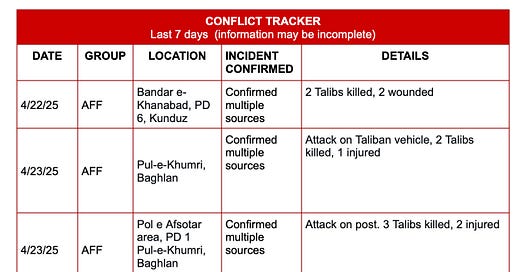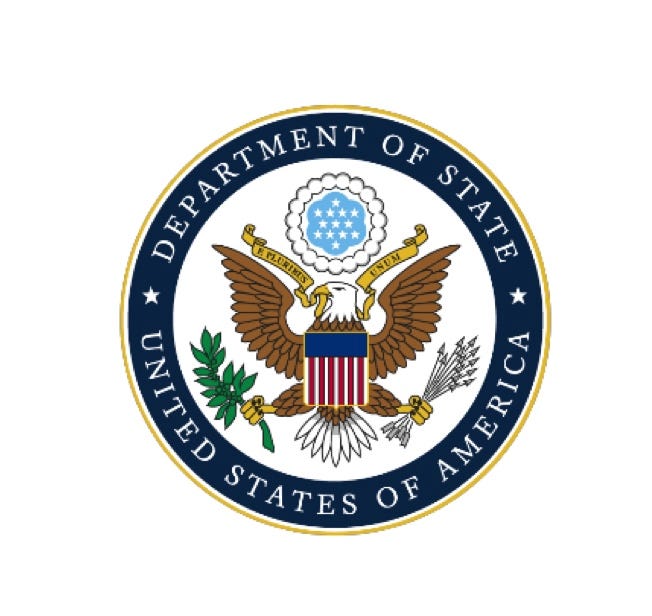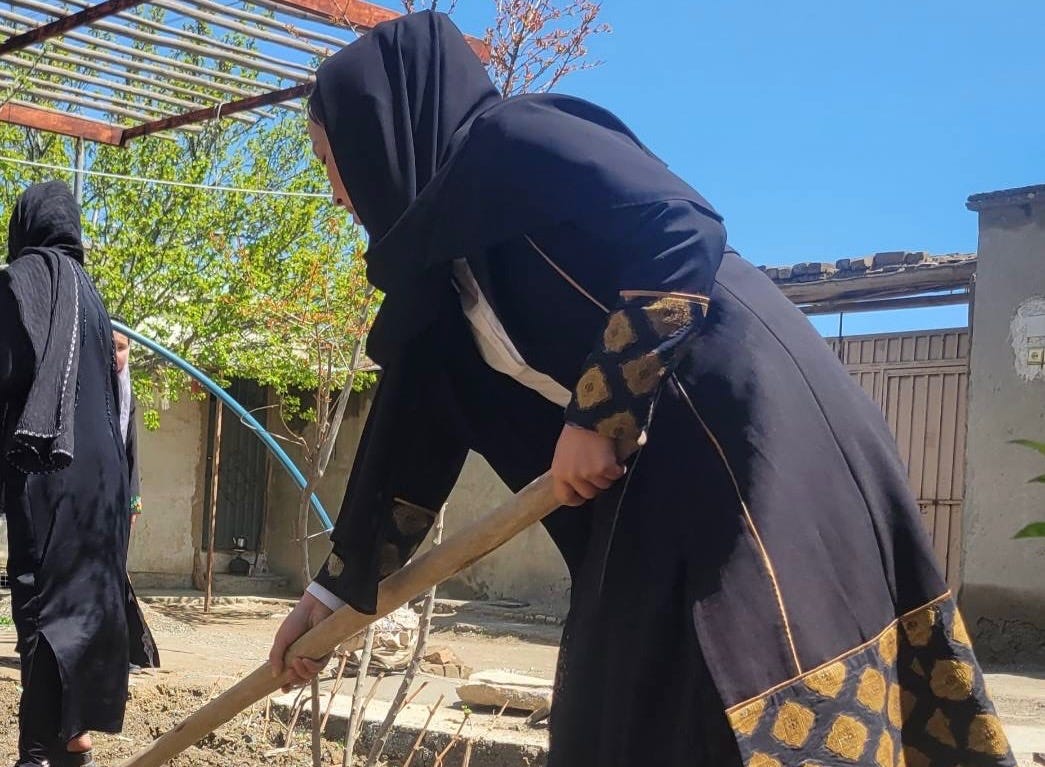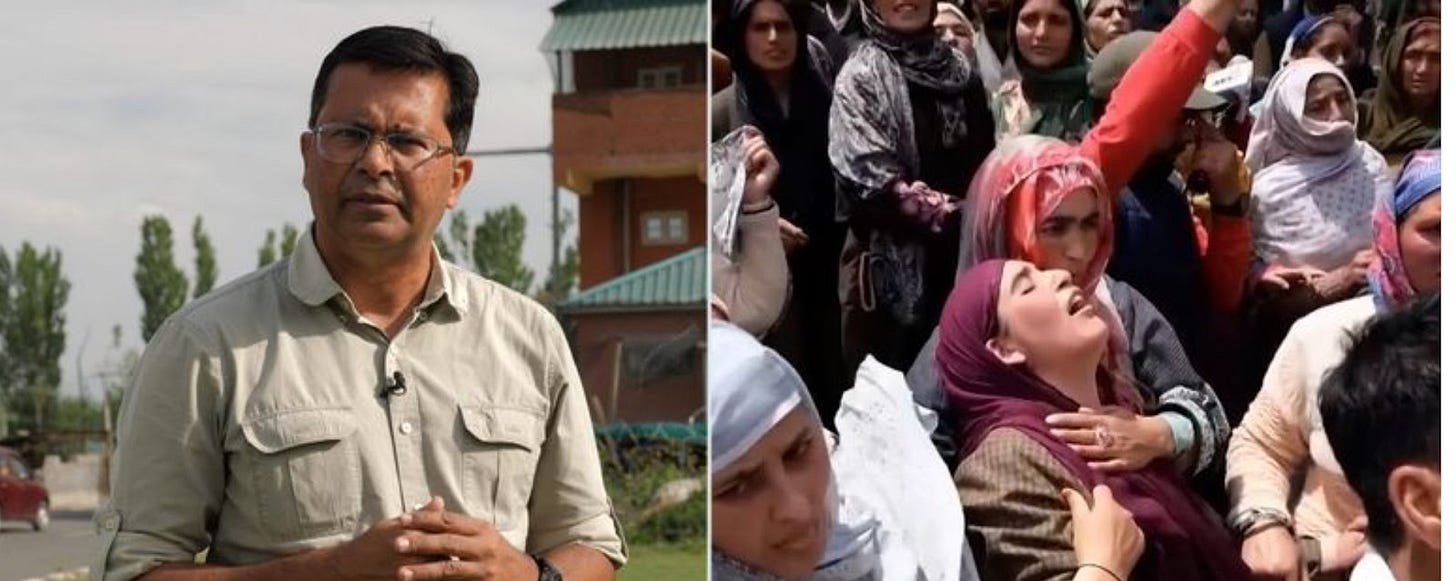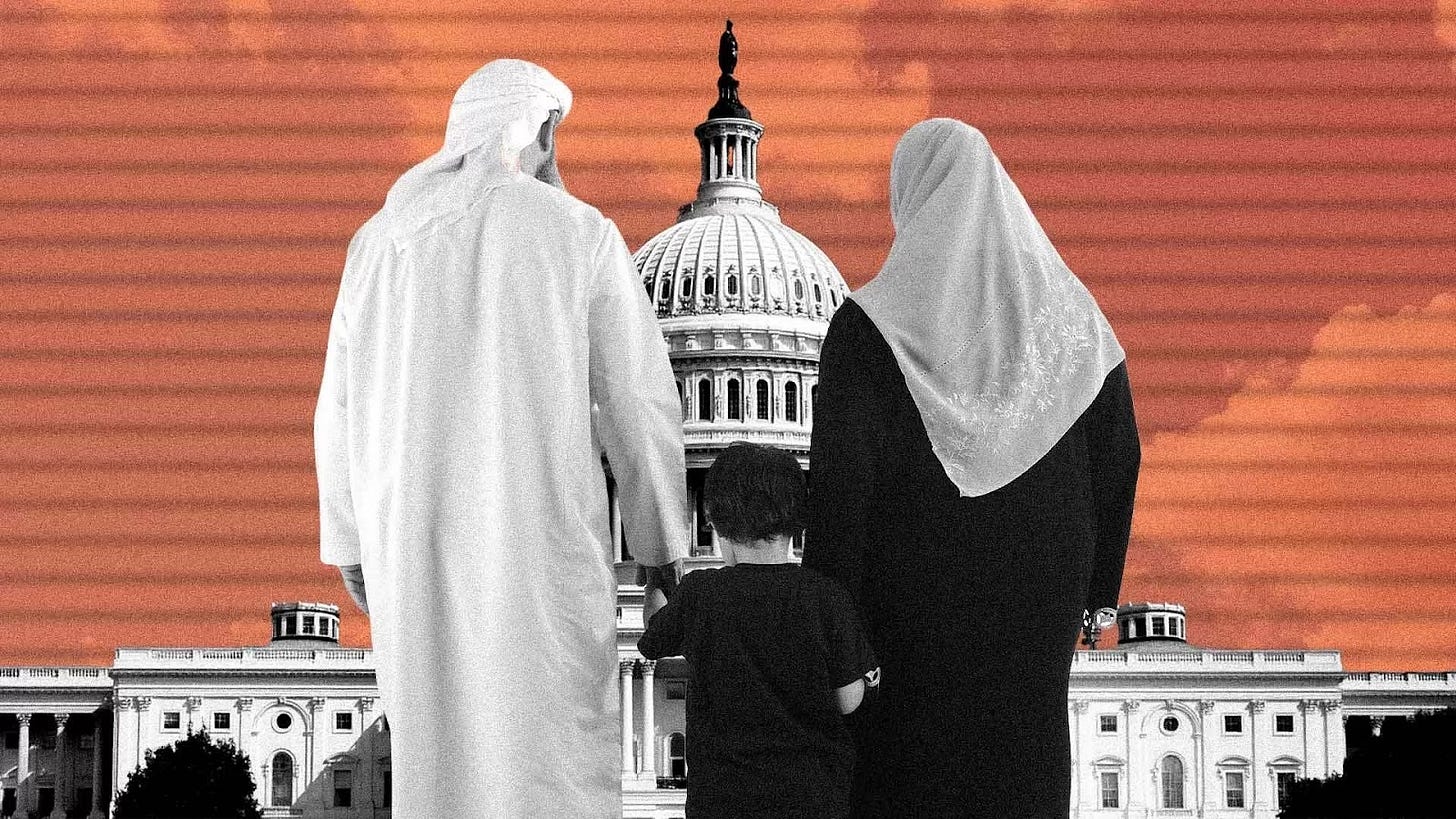The Week of April 21-27
Security and Conflict
54 TTP Members killed trying to cross Afghan Border to Pakistan – On Sunday, Pakistani security forces killed 54 TTP militants overnight in North Waziristan’s Datta Khel region, near the Afghan border, in one of the deadliest clashes in recent years. The military said most of the militants, described as "Khwarij," were Afghan citizens. Separately, three TTP fighters were killed while attempting to infiltrate Bajaur district, and the TTP confirmed three more deaths in a drone strike in Mianwali, Punjab. Officials blamed "foreign masters" for directing the militants to carry out attacks inside Pakistan.
Poppy Eradication Starts in Badakhshan and Takhar – On Wednesday, the Taliban launched renewed poppy eradication campaigns in Badakhshan and Takhar provinces. In Badakhshan, the operation began in Kishm district and is expected to continue until all poppy fields in the province are eliminated. In Takhar, Taliban forces destroyed around 40 acres of poppy fields across several areas, including the villages of Gula Kharman, Gura Qishlaq, and Khairabad in Taloqan city’s First District. Authorities have stated that the eradication effort is ongoing. This comes despite earlier Taliban claims of having eradicated poppy cultivation nationwide. According to the UN Office on Drugs and Crime, poppy cultivation has increasingly shifted to the northeast, with 59% of 2024’s poppy fields located in this region, especially in Badakhshan.
Human Rights and Civil Liberties
Panjshir and Logar to Implement New Restrictions – On Wednesday, Panjshir’s Taliban governor, Mohammad Agha Hakim, announced the enforcement of Mullah Hibatullah Akhundzada’s decree banning "undesirable customs" such as lavish weddings and mourning expenses. The Ministry for the Promotion of Virtue will monitor compliance. Public ceremonies have been held to inform citizens, with similar messaging echoed in Logar province.
Crackdowns on Dress in Education – In recent months, the Taliban have intensified their crackdown on dress codes across Afghanistan’s education sector, focusing on both private institutes and public universities. Girls in private institutions are now required to wear "Sharia-compliant" hijab, with threats of arrest, detention, and public shaming for non-compliance. Male students face mandatory traditional Afghan attire, including turbans and beards, with daily inspections; those who fail to comply are subjected to physical punishment, harassment, and even denied entry to classes. Teachers are pressured to enforce these rules or risk penalties. This strict environment has fueled fear, suppressed critical thinking, and caused many students, especially girls, to abandon their education.
Floggings – On Wednesday, a man and a woman were flogged in Baghlan.
Vice and Virtue Arrests man for ‘Sorcery’ – On Thursday, the Taliban arrested a man in Kabul’s District 11 for alleged "sorcery" and inciting public unrest. Since banning such practices in August 2023, the Ministry for the Promotion of Virtue claims to have detained thousands for similar offenses, which it considers religiously forbidden and illegal nationwide.
Internal Politics
Ministry of Defense To Cut 20% of Staff – On Monday, the Taliban’s Ministry of Defense introduced a procedure to cut 20% of personnel in the security and defense sectors. The phased reduction prioritizes: (1) removal of undesirable individuals, (2) those recruited post-"Fath" operation, (3) their associates, (4) non-immediate family of war casualties, (5) voluntary resignations, (6) households with more than two jobholders, and (7) older or minimally experienced lower-rank staff. Personnel falling under phases two to seven will be reassigned to reserve roles and receive a 5,000 Afghani monthly stipend.
Taliban Cut 90,000 Education Positions – On Wednesday, documents surfaced showing the Taliban-led Ministry of Education has cut over 90,000 positions, reducing its workforce from 389,200 to 299,684 for the new fiscal year. The decision, approved by Mullah Hibatullah, aims to cut costs and align staffing with operational needs. Most eliminated posts were vacant or in low-impact areas. About 18,468 positions remain temporarily protected. The move may affect over 35,000 workers and has raised concerns over backlash and international criticism. A proposal for temporary salary continuation remains unapproved.
Mullah Hibatullah Gives Speech at Kandahar University – On Tuesday, Mullah Hibatullah delivered a rare speech at Kandahar University during a four-day Islamic culture conference attended by over 2,600 people. He declared military conflict with "infidels" over but warned of an ongoing ideological war. Hibatullah emphasized continued sacrifice for Sharia implementation and the spiritual and material value of knowledge, stating, "I want for you what I want for myself." Over 2,000 participants renewed allegiance to him as part of the conference.
Haqqani Returns to Ministry – On April 20, Taliban Interior Minister Sirajuddin Haqqani chaired his first official meeting in Kabul since disappearing in December 2024 after the assassination of his uncle, Khalil Haqqani. The meeting included ministry deputies and directors. This marks Haqqani’s first public appearance in months, suggesting a return to active leadership within the Ministry of Interior Affairs.
National Assembly for the Salvation of Afghanistan Rifts Form – On Tuesday, several anti-Taliban groups, including the NRF, AFF, and a faction of Jamiat-e-Islami, withdrew support from the Assembly following Umar Daudzai’s appointment as Chief Executive. Daudzai, an ethnic Pashtun from Kabul, is a controversial figure, revealing deep internal divisions. Launched in December 2024, the Assembly now faces instability and reflects the fragmentation of Afghan resistance movements nearly four years into Taliban rule.
Federalist Government Holds Online Conference – On April 20, the Federalist Assembly of Afghanistan, including ex-VP Sarwar Danish and ex-MP Latif Pedram, unveiled a draft constitution proposing a federal system to replace centralized governance. The 12-chapter, 207-article draft invites public and expert feedback. Advocates argue that federalism promotes ethnic and regional inclusion, while some former officials oppose it, fearing national disunity. Though lacking formal legitimacy, the initiative continues exiled leaders’ dialogue on Afghanistan’s political future.
International Developments
World Bank Releases Report on Afghanistan – The Afghanistan Development Update estimates 2.5% GDP growth in 2024, driven by agriculture, mining, construction, and commerce. Despite this, poverty, food insecurity, and a widening trade deficit persist. Per capita income stagnates amid rapid population growth, high unemployment, and restrictions on women’s work. Youth unemployment nears 25%. The banking sector faces liquidity issues, and domestic revenues remain insufficient. The World Bank calls for inclusive employment programs, especially for women and youth. The full report can be accessed here
UN Drafting Political Plan for Afghanistan – A new UN-led political initiative is under discussion. The international community demands an inclusive government, human rights guarantees, and counterterrorism commitments. In return, the Taliban seek sanctions relief, diplomatic recognition, and access to frozen assets. While the UN aims to build consensus, progress remains stalled due to the Taliban’s rejection of external oversight. The full UN plan can be found Here
UNICEF Statement on Impact of Deportations on Children – Based on recent reports, Two-thirds of those returning from Pakistan since September 2024 are children. UNICEF confirmed that 782 unaccompanied children have been reunited with their families. Over 80,000 Afghans have been expelled since April 1, bringing total deportations since November 2023 to 907,351. UNICEF representative Oyewale visited the Torkham border to meet affected children.
US State Department Appoints New Official for Afghanistan – On Monday, Mary Kabir-Siraj Bischoping was appointed Deputy Assistant Secretary for Central Asian Affairs, overseeing Afghanistan. A University of Virginia law graduate, she previously led oversight on the U.S. withdrawal and chaired a congressional subcommittee. Her royal lineage—she is the granddaughter of Enayatullah Khan, brother of former King Amanullah—was noted in the press but not by the State Department.
Taliban To Appoint Ambassador to Russia – On Wednesday, Acting Foreign Minister Amir Khan Muttaqi announced plans to appoint a Taliban ambassador to Moscow. A joint commission will be formed during the Moscow Format summit in May. Despite improving ties, no country, including Russia, has formally recognized the Taliban.
Freedom of the Press
Taliban Ban Images in Bamiyan – On Tuesday, Bamiyan became the 15th province to ban photography. The order, signed by Governor Abdullah Sarhadi, directs government offices to stop taking photos during meetings or events. On Sunday, Panjshir became the 16th province with a similar ban.
Regional Developments
Kazakh Deputy PM Visits Kabul – On Monday, Kazakhstan’s Deputy Prime Minister Serik Zhumangarin led a delegation to Kabul and signed $3 billion in economic agreements with the Taliban. Hosted by Mullah Baradar, the visit included a business forum and joint trade exhibition. Taliban Minister Nooruddin Azizi called Kazakhstan a vital partner, highlighting plans to reduce dependency on regional neighbors such as Pakistan. Kazakhstan recently removed the Taliban from its terrorist list to ease engagement. Talks also covered the creation of a logistics hub in Herat for oil exports.
Tajikistan Deports 40 Afghans – On Monday, over 40 Afghan migrants were forcibly deported from the Tajik city of Vahdat via the Sher Khan border crossing. The group included taxi drivers and small business owners holding valid refugee documents. Some were detained at work, while others were arrested while shopping or seeking medical care. This marks the third known mass deportation of Afghan migrants from Tajikistan in recent months.
Muttaqi Traveling to Qatar – Taliban’s Deputy Foreign Ministry spokesman confirmed that Amir Khan Muttaqi, leading a high-level delegation, is traveling to Qatar on Sunday to meet Qatari officials. The visit’s exact goals remain unclear.
Taliban officials invited to SCO Summit – On Monday, China’s ambassador in Kabul invited Taliban officials to the upcoming Shanghai Cooperation Organization summit, signaling Beijing’s intent to deepen bilateral ties. Although Afghanistan has been an SCO observer since 2012, it has not actively participated under Taliban rule and has been previously excluded from events. The 25th summit, to be held in China, will focus on food security, energy, the environment, and anti-terrorism cooperation.
Taliban Minister Meets with UNAMA – On Tuesday, Taliban Acting Minister Kabir condemned Pakistan’s forced deportations and police mistreatment of Afghan migrants, citing rising tensions. In a meeting with UNAMA, he urged humanitarian agencies to continue and prioritize aid to returnees. UNAMA’s deputy shared updates on recent support efforts.
Taliban Minister invitees to Pakistan – OOn Monday, Pakistan formally invited Taliban Acting Foreign Minister Amir Khan Muttaqi to Islamabad amid tensions over migrant expulsions, cross-border militancy, and TTP activity. The invitation followed Pakistani FM Ishaq Dar’s visit to Kabul, during which both sides pledged cooperation against terrorism. Muttaqi urged Pakistani support in counterterrorism, while Dar raised concerns over the TTP. India criticized Pakistan’s Taliban engagement as Islamabad seeks to restore influence amid Taliban-India outreach. Analysts suggest the Taliban is recalibrating its regional ties to balance relationships with both rivals.
Afghans Arrested For Drug Offenses in Delhi – On Monday, Delhi police dismantled a drug trafficking network linked to Afghanistan that used the mobile game PUBG for covert communication. In “Operation Full Clean,” officers seized 1,667 grams of heroin and 130 grams of chemicals. Key suspect Faheem Farooq, from Kashmir, worked with Shazia Peer, who had contacts in Afghanistan, the UK, and the U.S. The network routed heroin from Afghanistan to Delhi, bypassing surveillance via the gaming platform.
Plans Begin for Trans-Afghan Railway – On Friday, Uzbekistan and Russia signed agreements to begin a feasibility study in 2025 for the Trans-Afghan Railway. The project aims to connect Central Asia to Pakistan via Afghanistan, with two potential routes under review. It is part of a broader plan to boost regional trade, particularly through the China–Kyrgyzstan–Uzbekistan corridor. Russia’s removal of the Taliban from its banned list facilitates engagement, while Uzbekistan deepens ties with Taliban authorities through diplomacy and infrastructure projects.
Miscellaneous
UNAMA Statement on Earth Day – On Tuesday, UNAMA marked Earth Day by warning that Afghanistan faces severe climate change impacts, including drying rivers, water scarcity, deforestation, and prolonged drought. It stressed the urgency of forest restoration, sustainable water management, and broader climate action. Unsustainable practices, pollution, and lack of awareness are accelerating environmental degradation. The EU also pledged support for Afghanistan’s climate response. Earth Day is observed annually on April 22 to raise environmental awareness.
NEXT WEEK
In Afghanistan, the Taliban have been emboldened by increased regional engagement despite the lack of official recognition. Crackdowns on various groups, particularly women and minorities, are expected to continue. Following a number of confirmed resistance attacks in the north over the past two weeks, security operations are likely to intensify in northern cities, particularly Takhar, Kunduz, and Baghlan. Tensions are also expected in Badakhshan, where poppy eradication efforts have begun; in past years, such campaigns have triggered protests, often met with violent responses by the Taliban.
Border tensions between Pakistan and Afghanistan are likely following Pakistan’s claim of killing approximately 50 TTP militants on Afghan soil. With Pakistan’s current tensions with India, accusations of Afghan-based terrorism are expected to increase, and pressure on the Afghan border will likely grow. Border clashes, particularly around North Waziristan, are possible and could lead to temporary border closures. Afghans traveling to Pakistan should remain aware of potential disruptions at border crossings.
In Pakistan, North Waziristan faces a curfew on Sunday from 6 p.m. to 6 a.m., which may be extended as clashes with the TTP and cross-border incidents remain possible.
Pakistan continues the deportation of ACC holders. Beginning May 1, Afghans awaiting relocation to third countries will also be targeted for deportation by Pakistani authorities. This week, Germany paused flights of Afghan refugees, and the U.S. relocation program remains on hold. Individuals holding PoR cards face deportation beginning June 30. All Afghans in Pakistan are strongly advised to carry valid visas and identification at all times. It is important to note that Afghans may face detention, harassment, or extortion regardless of their legal status.
Afghans in Iran face similar challenges, with increasing restrictions on employment and education, as well as arbitrary detention and deportation. Afghans in Iran are advised to maintain legal status, avoid large gatherings, and keep a low profile.
Vulnerable Afghan populations in both countries are strongly urged to exercise caution, as deportees face a heightened risk of being targeted by the Taliban upon return—potentially under accusations of affiliation with IS or other terrorist groups.
In the U.S., the situation remains largely unchanged. Temporary Protected Status (TPS) for Afghans ends on May 20; any Afghans in the U.S. with only TPS status or those who have received a notice to self-deport should seek legal assistance immediately.
ICE stops remain a possibility; Afghans are reminded to carry documents related to their legal status at all times.
At this time, SIV holders with visas in their passports are able to travel to the U.S. through self-funded travel. SIVs with valid visas are strongly encouraged to travel to the United States as soon as possible, as a travel ban remains likely. Housing and resettlement assistance for new arrivals is limited. Individuals arriving in the U.S. should ensure they have a local support system in place to assist with initial expenses and accessing available benefits.
A travel ban affecting Afghan nationals seeking entry to the U.S. remains likely, although the timeline for implementation is unclear. All Afghans in the U.S., including Green Card holders, are advised to avoid international travel at this time.
Resources for Afghans are available:
Parole assistance – Here
Resources for recent SIV arrivals – Here
Support for recent refugee arrivals – Here
Updates on U.S. visa cases and legal developments – Here
REGIONAL ROUNDUP
IRAN
Large Explosion at Bandar Abbas – On Saturday, a massive explosion at Iran’s Shahid Rajaee Port near Bandar Abbas killed approximately 40 people and injured around 1,205. The blast, reportedly caused by a fire that reached unsealed chemical containers, devastated nearby buildings and cars, with impacts felt up to 50 km away. Fires continued burning throughout Saturday, and rescue efforts were underway to save workers trapped under collapsed structures. Ambrey Intelligence suggested the blast may have involved solid fuel for ballistic missiles, though the cause has not been confirmed. According to a statement from Saeid Jafari, CEO of Sina Port and Marine Services Company, the explosion at Rajaee Port was caused by highly dangerous goods that were falsely declared as regular cargo and improperly stored, resulting in a powerful blast and significant destruction. Authorities stated that oil infrastructure was unaffected. President Masoud Pezeshkian expressed sympathy and launched an investigation.
Statement on Afghan Child Labor in Tehran – On Friday, Tehran’s Deputy Governor for Political and Social Affairs, Hossein Kaghazloo, stated that around 85% of the child laborers identified in the city are Afghan nationals. His remarks came during a meeting of Tehran’s Social Council, which reviewed major social challenges including child labor, addiction, and homelessness. Officials directed all relevant agencies to submit action plans within a month. Last year, 2,300 homeless individuals with substance use disorders received assistance, with expanded services planned. Afghan children remain significantly represented in Iran’s informal labor sector, reflecting broader migration and social welfare pressures.
Opposition Leader Released after 14 years – On Tuesday, Iranian opposition leader Mehdi Karroubi was officially released from house arrest after more than 14 years, his son announced. Security forces withdrew from his residence roughly 10 days later than the initially scheduled April 8 deadline. Karroubi had been under house arrest since February 2011 for disputing the results of Iran’s 2009 presidential election. He will now begin receiving guests, with measures in place to avoid disturbing neighbors. Authorities continue to deny allegations of election fraud.
PAKISTAN
Deportations Continue – Between April 1 and April 24, Pakistan deported over 120,000 Afghan migrants, according to its Ministry of Interior. The expulsions have been justified by accusations linking migrants to terrorism and drug trafficking. Pakistan plans to deport around 800,000 Afghans, many of whom have lived in the country for decades, including children with no familiarity with Afghanistan.
Pakistan Funds Complaint Center For Deportees – On Monday, Pakistan’s envoy to Afghanistan, Mohammad Sadiq, announced the establishment of a control center to support Afghan deportees and handle complaints of mistreatment during deportation. This follows Foreign Minister Ishaq Dar’s recent visit to Kabul. Amid continued deportations from both Pakistan and Iran, the Taliban are urging increased humanitarian aid for returnees, although only 5% of the required funding has been secured.
TTP Member Associated with Afghanistan Killed – On Monday, Pakistani Taliban affiliate Zabihullah alias Zakran, wanted for 22 attacks, was killed in an intelligence-based operation in the Badar area of South Waziristan. Five of his associates were injured. Zakran had orchestrated the deadly December 21, 2024, attack on a military post that killed 17 soldiers. The attack, launched from Afghan territory, led to retaliatory Pakistani airstrikes in Paktika and heightened tensions between the two countries.
Tensions with India – Following a deadly attack on Indian tourists in Kashmir, tensions between India and Pakistan have sharply escalated. In response, India suspended the Indus Waters Treaty, closed the Wagah-Attari border crossing, canceled visas for Pakistani citizens, ordered them to leave the country, and expelled Pakistani military attachés from New Delhi. Pakistan retaliated by closing its airspace to Indian flights, suspending all trade—including via third countries—blocking the Wagah-Attari corridor, and halting SAARC visa exemptions for Indian citizens (except Sikh pilgrims). Indian nationals and military staff were ordered to leave Pakistan within 48 hours.
SPOTLIGHT ANALYSIS
The Department of State, the Department of Homeland Security (DHS), and other USG departments and agencies involved in the Afghan SIV process continued to assist Afghans covered by Section 602(b) of the Afghan Allies Protection Act of 2009, as amended, during the reporting period. Congress requires this quarterly report to review statistical data on nationals of Afghanistan who applied for status as special immigrants.
How many Afghan SIVs have been issued in the first quarter (Q1) of FY 2025 (October 1, 2024 to December 31, 2024)?
What efficiency improvements have been made to Afghan SIV processing?
The Afghan SIV Unit (ASIV) continued to expand its use of advanced analytics and automation to streamline the Chief of Mission (COM) review process and recordkeeping. ASIV also continued to focus on reviewing some of the longest-pending COM cases during the quarter. Overall, output stayed relatively stable from 11,954 cases completed in Q4 FY 2024 to 11,174 cases completed in Q1 FY 2025.
What is the average USG processing time for Afghan SIVs, and how many cases are processed in that time?
The stages and steps in the Afghan SIV application process are outlined below and include the current average processing time for each step, including the time required by relevant USG entities. This chart captures total USG processing time in calendar days, beginning when the applicant first expresses interest in applying for a SIV to the National Visa Center and ending with the date of visa issuance at a U.S. embassy or consulate. It does not capture time taken for steps in the SIV process outside the control of the USG that depend solely on the applicant’s initiative. However, even within each step below identified as under the control of the USG, there may be significant time spent awaiting applicant or third-party action not attributable to the USG entities involved. Therefore, the average processing time listed below likely overestimates the total processing time solely attributable to USG entities.
AFGHAN NEWS
Jurist
In August 2021, the world watched as the Taliban regained control of Afghanistan, sweeping away two decades of progress toward democracy, human rights and gender equality. While international headlines have since moved on to other crises, millions of Afghan women and girls continue to live under increasingly restrictive policies that have systematically stripped away their most fundamental rights.
This series of anonymous interviews gives voice to those who have been deliberately silenced. Through intimate conversations with women and girls across Afghanistan, we document the profound human impact of the Taliban’s return to power. From students forced to abandon their education to professionals removed from public life, these firsthand accounts reveal the day-to-day reality behind the headlines—a reality of dreams deferred, freedoms revoked, and lives fundamentally altered.
REGIONAL NEWS
Kashmir Terror Attack: 27 Tourists Killed in Pahalgam, Amit Shah Says Attackers 'Will Not Be Spared'
Outlook Business Desk
Kashmir Terrorist Attack: On Tuesday afternoon, terrorists opened fire at a renowned meadow near Kashmir’s Pahalgam town, killing 26 people, mostly tourists.
According to officials, the 27 victims included two foreigners and two locals, though further details were not provided. The exact death toll is still being determined, said Jammu and Kashmir Chief Minister Omar Abdullah, who described the attack as "much larger than anything we've seen directed at civilians in recent years."
The assault, occurring during US Vice President J.D. Vance's visit to India and during the peak tourist and trekking season, took place around 3 pm, as per sources.
India closes Pakistan border and expels diplomats over Kashmir 'terror attack'
Sky News
India has closed a border crossing, suspended a water-sharing treaty and downgraded diplomatic ties with Pakistan, a day after a militant attack in Kashmir that left at least 26 people dead and 17 others wounded.
India blames its neighbour for Tuesday's assault in Pahalgam, a popular tourist destination in the Indian-held part of the territory, which both nuclear-armed nations claim as their own.
Pakistan, which said it was "concerned at the loss of tourists' lives", has denied involvement.
INTERNATIONAL NEWS RELATING TO AFGHANISTAN
Zahir Qadir, Former Afghan MP, Arrested in Kenya, Faces U.S. Extradition
Kabul Now
Abdul Zahir Qadir, a former member of Afghanistan’s parliament, has been arrested by Kenyan police and is expected to be extradited to the United States, according to the Nairobi Times.
Prosecutors say Qadir arrived in Nairobi on April 14 aboard a Qatar Airways flight. He was detained at a hotel in the capital, and a local court has approved his continued custody.
A U.S. district court in New York had issued a warrant for his arrest on March 25, charging him with conspiracy to import narcotics and possession of heavy weapons.
Ex-Taliban commander pleads guilty to taking US journalist hostage
Jasper Ward
A former commander in the Taliban has pleaded guilty to taking an American journalist and two Afghan nationals hostage in Afghanistan and Pakistan in 2008 and 2009, the U.S. Justice Department said on Friday.
Haji Najibullah, 49, an Afghan national, who was charged in 2020 with kidnapping David Rohde, a former Reuters correspondent, faces life in prison.
Washington's Broken Promises Leave Afghan Allies in Limbo
Beth Bailey
Following the August 2021 Taliban takeover of Afghanistan, the Afghan allies—including interpreters, government professionals, media members, and military personnel—who supported U.S. efforts to bring democracy to their country have lived in fear of Taliban reprisal inside their homeland. Hundreds of thousands applied for visas or sought other forms of legal status in the U.S. and began the process of finding safety.
Over three years later, up to 140,000 primary applicants—and their spouses and unmarried children under the age of 21—were mired in slow-moving processing pipelines when a pair of January 20 executive orders from President Donald Trump suspended the U.S. Refugee Admissions Program (USRAP) for 90 days and canceled the foreign funding that supports Afghans in transit from overseas processing hubs. A January 24 stop-work order from the State Department dealt a further blow, ending resettlement assistance for new arrivals in the U.S.
Afghani to the Dollar: $1 – 71.17 AFN (As of April 27)

